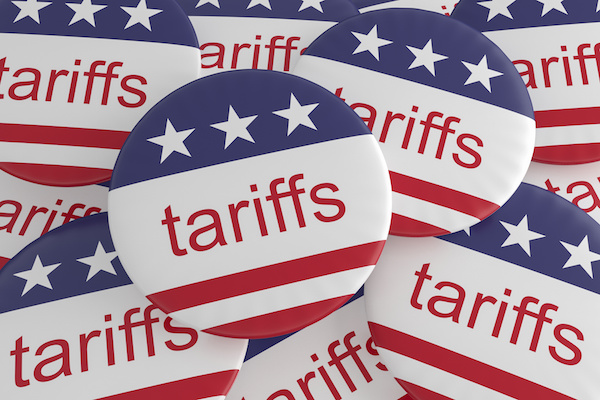Losing my religion, part two
Losing my religion, part two
A blade and knife manufacturer for the lumber industry suggested that it might have to close its plant in Michigan. The largest nail producer in the U.S. has laid off 60 workers and warns that it may be forced to move its factory to Mexico. A California cannery said its profit margins could drop by up to 70 percent over the coming months. A well-known motorcycle manufacturer said it's shifting some of its production to foreign countries. What is this financial crisis that's affecting so many manufacturing companies? In each case, the Trump administration's tariffs on steel and aluminum are said to be the culprit.

A blade and knife manufacturer for the lumber industry suggested that it might have to close its plant in Michigan. The largest nail producer in the U.S. has laid off 60 workers and warns that it may be forced to move its factory to Mexico. A California cannery said its profit margins could drop by up to 70 percent over the coming months. A well-known motorcycle manufacturer said it's shifting some of its production to foreign countries.
What is this financial crisis that's affecting so many manufacturing companies? In each case, the Trump administration's tariffs on steel and aluminum are said to be the culprit.
It's more than private businesses that are up in arms, however. The American Institute for International Steel Inc. (AIIS), along with two of its member companies, recently filed a lawsuit seeking to block enforcement of the tariffs, claiming that the president's move was unconstitutional.
Similarly, the European Union opened a case with the World Trade Organization against the U.S., charging unfair trade practices. (Although it's also suing China—go figure.) Even prominent members of the Republican Party are getting in on the action: Sens. Jeff Flake and Bob Corker and others have loudly criticized the Trump administration's policies as protectionist.
Fake news? Maybe. It's hard to know who to believe these days. My cynical side says everyone has their own agenda, but it's also clear to me that the truth lies somewhere between the opposing views found on Fox News and CNN—probably a smidge to the left. Sorry if that offends anyone. If it does, it's an indicator of the underlying problem: It seems that many Americans are unlearning tolerance toward any opinions not their own.
Back to Washington. I don't like lawyers any more than politicians—largely because so many lawyers are politicians—but the looming legal battles indicate that something is amiss with our country's newfound trade policies. Or is it all just a bunch of political posturing designed to score points with constituents?
It's also important to recognize that the AIIS board is made up of global steel traders, railroads and port authorities, foreign steelmakers, and others who profit by the international metals industry. Why wouldn't they wish to continue doing business as they have?
For that matter, Europe is concerned only with European interests, Canada is concerned only with Canadian interests, and the politicians are worried only about garnering enough favor to win the next election, not what's good for the country.
And manufacturing companies? The tariffs aren't unlike wage increases, rising energy costs, higher taxes and any other cost that negatively impacts the bottom line. Everyone will gripe about it for a while, a few companies will fail, but, for the most part, life and manufacturing will go on.
What's most disconcerting to me isn't the growing price of steel or aluminum or the notion that I might have to pay an extra $1,599 for my next car because of it. Rather, it's the cost that the tariffs and so many other crushingly delivered campaign promises are having on our increasingly divided country.
That's what we need to be discussing as we sit down at the break table each day. Whether riding in the morning car pool or toppling tenpins at the Rock 'n' Bowl on Saturday night, it's our differences with which we must continuously struggle. Tariffs, like politicians, come and go. It's we the people who remain. Get talking, people.





